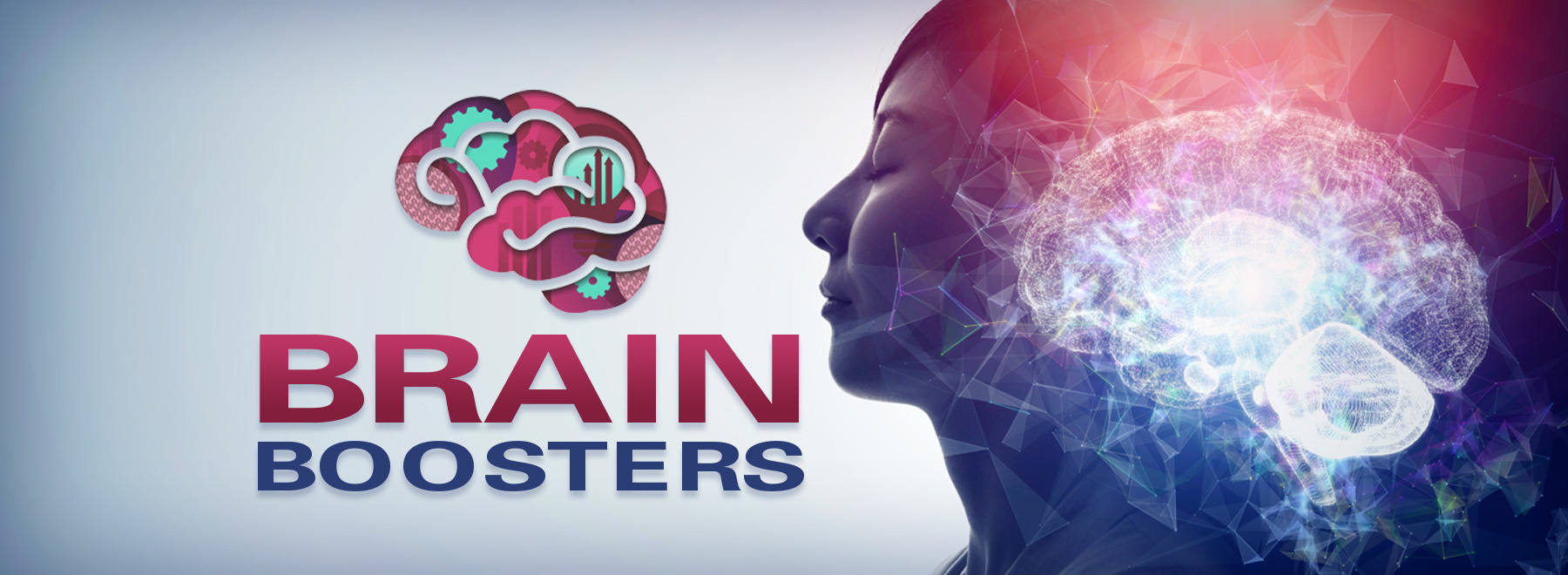UMMC experts share tips on how to maintain brain health
With more than 100 billion cells, the brain is the bustling network of highways that gets us through the world. Keeping the neural roads clear of traffic jams and potholes is an essential part of health.
University of Mississippi Medical Center experts share some information to help you keep your brain healthy.
AGING BRAIN

Dr. Kim Tarver, chief of the Division of Geriatrics, says it’s normal to experience some slowdowns in thinking as you age, and they may begin earlier than you think.
“Starting in our 30s and 40s, you may start to experience a slower processing speed. It might take an hour to remember the name of someone you recognized in the grocery store. You might have difficulty finding the right word for something under pressure,” said Tarver of The MIND Center at UMMC.
However, there are warning signs that you shouldn’t ignore.
In unhealthy brain aging, “you may not have access to that word or name at all, and increasingly, that happens even with very familiar people like close relatives,” she said.
These can be signs of Alzheimer’s disease or related dementias, or ADRD. Alzheimer’s makes up about two-thirds of ADRD diagnoses, but vascular dementia and Lewy body dementia can also cause memory loss and cognitive impairment.
While the origins of these diseases differ, the most likely ways to prevent them have plenty of overlap.
“What we’re learning is that the risk factors for these conditions are largely the same,” Tarver said.
Cardiovascular diseases like stroke, hypertension and diabetes, and their own risk factors, all raise the risk of ADRD. Some are impossible to modify, like your age or genetics. However, Tarver said several lifestyle changes can reduce your risk for Alzheimer’s disease or other dementias.
- Eating a diet rich in plants and lean proteins and low in salt. “I encourage my patients to ‘eat the rainbow,’” Tarver said.
- Increasing physical activity and exercise
- Stopping or avoiding tobacco products
- limiting alcohol consumption: no more than two drinks daily for men, one for women
In addition, “We’re increasingly aware of the effect of psychosocial factors on dementia,” Tarver said. Isolation and loneliness appear to be associated with dementia. Mental health conditions like depression seems to increase risk of ADRD as well.
NO QUICK FIXES

What about those as-seen-on-TV dietary supplements and expensive brain training apps that purport to stave off memory loss? There’s no evidence that they work, said Dr. Kevin Sullivan, an assistant professor at The MIND Center.
“If it seems too good to be true, it probably is,” Sullivan said. When it comes to brain health, “It’s probably more of a marathon than a sprint. Sustainable, consistent choices are going to better than popping a pill,” he said.
Like Tarver, he says exercise and eating plans like the Mediterranean or low-sodium DASH diet are your best bets for overall health, and in turn, brain health.
“We are very certain that these diets help prevent cardiovascular disease,” and cardiovascular disease is a substantial risk factor for Alzheimer’s and other forms of dementia, he said.
He says that doing crosswords, reading and other forms of intellectual stimulation can be part of a mind-healthy lifestyle. However, don’t think of them as unequivocal brain boosters.
“There’s ultimately not a lot of evidence that these activities certainly prevent dementia, but they are fun and there’s no risk. It’s all potential benefit,” Sullivan said.
BRAIN BUMPS
With the recent death of comedian Bob Saget attributed to a head injury likely sustained by a fall, it’s a good time to remember that preventing concussions and traumatic injuries is an important part of brain health as well.

Dr. Jennifer Reneker, professor of physical therapy, says three events cause the majority of brain injuries: sports, motor vehicle crashes and, especially for older adults, falls.
Concussions and other brain injuries can occur when the body goes from motion to a sudden stop.
“A soft brain hits a hard skull,” she said.
The primary difference milder concussions and traumatic brain injuries are how they appear on medical imaging. There’s no visible damage on a concussion, leading to its reputation as an “invisible injury.”
“If you can see the injury on an X-ray or a CT, it is no longer mild,” Reneker said.
However, concussions still need attention from medical professionals, since they can cause headache, blurred vision, cognitive changes and changes in balance.
“You can definitely have a concussion and never lose consciousness,” she said.
For injuries associated with falls, Reneker says the best prevention is modifications to make falls less likely. That could mean installing grab bars in a bathroom, wearing appropriate footwear, removing rugs and tripping hazards, or using a walker or cane to assist with balance.
To prevent brain injuries caused by vehicle crashes and sports, Reneker says the best advice is to “follow the rules” designed to keep the rest of your body safe: obey the traffic laws and the referee’s instructions.
And of course, wear a helmet when biking, skateboarding, riding or doing similar activities. Even then, Reneker says that concussions can still happen.
“Helmets just prevent even worse injuries.”
The above article appears in CONSULT, UMMC’s monthly e-newsletter sharing news about cutting-edge clinical and health science education advances and innovative biomedical research at the Medical Center and giving you tips and suggestions on how you and the people you love can live a healthier life. Click here and enter your email address to receive CONSULT free of charge. You may cancel at any time.



